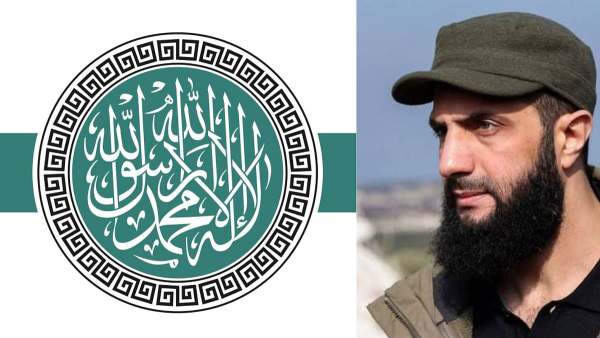
In an alarming development, intelligence agencies have sounded a high-alert advisory following the escalating crisis in Syria, marked by the fall of Bashar al-Assad’s regime and the alarming rise of Hayat Tahrir al-Sham (HTS), a militant group led by Islamist leader Abu Mohammad al-Julani, also known as Ahmed al-Sharaa.
About The Situation In Syria
Islamist rebel leader Abu Mohammad al-Julani, once seen in military fatigues, now presents himself as a statesman, signaling a shift in the group's ambitions. According to reliable sources from intelligence agencies, officials have assessed the gravity of the situation, urging all concerned entities to maintain the highest vigilance.
Hayat Tahrir al-Sham (HTS) is a Sunni Islamist political and paramilitary organization that emerged during the Syrian civil war. Initially formed as Jabhat al-Nusra, an al-Qaeda affiliate, it had the involvement of the former ISIS leader, Abu Bakr al-Baghdadi, in its formation. The group rebranded as HTS in 2017 after merging with other factions. Although HTS publicly announced its break from al-Qaeda, intelligence agencies suspect that, despite its rebranding efforts, HTS continues to operate with a Salafi-jihadist ideology, raising fears of further regional destabilization.
Collapse Of Assad's Govt Could Create A Dangerous Power Vaccun
The potential collapse of Assad's government could create a dangerous power vacuum, allowing extremist factions to gain unprecedented influence and further complicate the already volatile Middle Eastern landscape. India has repeatedly stressed the importance of an “inclusive Syrian-led political process” to resolve the conflict through non-military means. This stance has been viewed positively by the Assad government, as has India’s traditionally pro-Syrian position on the status of the Israeli-occupied Golan Heights. While India is by no means aligned with or a staunch backer of the Assad government, his ouster would present a number of challenges for India’s regional and global interests.
While Syria’s neighbours will each have unique security challenges and situations that arise due to the opposition victory, India’s distance does not necessarily mean it will not be affected. While India is not as deeply involved in the conflict as Turkey, Russia, or Israel are, the HTS’s past will undoubtedly be a major cause of concern. Supporters of this Salafi-Jihadi ideology often believe that violence and terrorism are legitimate means to achieve their religious and political goals. Terrorist organizations such as Al-Qaeda and the Islamic State (ISIS) are driven by this ideology.
Threat Of Terrorist Attacks
Salafi-Jihadi groups have repeatedly targeted India. The 26/11 Mumbai attacks and other major terrorist incidents are examples of how this ideology poses a severe threat to India's internal security. Many terrorist groups active in Pakistan and Afghanistan, such as Lashkar-e-Taiba and Jaish-e-Mohammed, are influenced by the Salafi-Jihadi ideology and continuously plot against India. The goal of Salafi-Jihadi propaganda is to deepen religious divides, leading to instability and communal violence.
The growing presence of Salafi-Jihadi organizations in India’s cyberspace is also a serious concern. These groups not only plan terrorist attacks but also damage the social fabric by planting fake news and propaganda.
Indian Intelligence Agencies Issue A Warning
Indian intelligence agencies have issued a warning that Syria's instability could impact India's internal security. States such as Maharashtra, Jammu and Kashmir, Punjab, West Bengal, and Assam are particularly vulnerable to a rise in terrorist activities. According to sources, there could be an increase in infiltration, radical propaganda, and illegal arms trafficking by terrorist organizations in these states.
Intelligence agencies have identified Maharashtra as especially sensitive, placing major metropolitan areas like Mumbai and Pune on potential terrorist attacks. As a financial hub, Mumbai remains a prime target for terrorist networks. Security agencies have been put on alert to keep a close watch on IT hubs and industrial areas in Pune. Potential activities of radical organizations have been intensified in cities like Nagpur, Beed, and Sambhaji Nagar (Aurangabad), particularly focusing on groups attempting to radicalize local youth through social media.
Security agencies have indicated that South India, particularly Kerala and Tamil Nadu, could also fall within the threat's scope, with attempts to promote radicalization through social media and online platforms.
In Jammu and Kashmir, security forces have been instructed to increase vigilance along the Line of Control (LoC) as well as in the interior regions, as there has been a noticeable rise in infiltration attempts.
In Punjab, a sudden surge in arms and narcotics smuggling through drones from across the border has raised alarm. According to intelligence agencies, Pakistan-based terrorist organizations are planning to exploit this situation to incite communal tensions in India.
Intelligence inputs from West Bengal and Assam suggest a heightened risk of radical groups recruiting local youth and an increase in illegal infiltration across the border. Special attention is being given to activities occurring through the Bangladesh route, as this region is on the brink of becoming a new haven for Islamic extremism.
As the crisis deepens, the international community faces a critical juncture: to intervene diplomatically and prevent another humanitarian catastrophe, or to risk allowing Syria to become a breeding ground for the next wave of global terrorism.